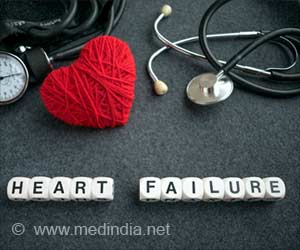Review explores ways that space radiation can damage cardiovascular health, and discusses how we can protect astronauts.

‘Antioxidant-rich diet, including dairy products, green vegetables such as spinach, and antioxidant supplements like vitamin C, has potential in protecting astronauts from the damaging reactive oxygen molecules produced during radiation exposure.’
Read More..




Space is incredibly inhospitable. Outside of low earth orbit, astronauts are bombarded with radiation, including galactic cosmic rays, and 'proton storms' released by the sun. This radiation is harmful for the human body, damaging proteins and DNA, and is one of the major reasons that we haven't yet been able to send anyone to Mars, or beyond.Read More..
These issues inspired Dr Jesper Hjortnaes of the Leiden University Medical Center in the Netherlands to investigate what we know about the harmful effects of space radiation.
"If we want to see human long distance space travel, we need to understand the impact of space-induced disease and how to protect our bodies from it," said Hjortnaes. However, Hjortnaes has an interest in a specific aspect of space radiation: its cardiovascular effects.
You may be surprised to learn that aside from the illnesses we typically associate with radiation, such as cancer, it can also have serious effects on the cardiovascular system. Suffering from cardiovascular illness would be catastrophic for crew members on long-haul space missions, and so it's important to identify what the risks are, and how to reduce them.
Hjortnaes and colleagues reviewed the evidence to establish what we know about the cardiovascular risks of space radiation.
Advertisement
So, what are the effects? Radiation can cause myocardial remodeling, where the structure of the heart begins to change, and tough, fibrous tissue grows to replace healthy muscle, potentially leading to heart failure.
Advertisement
Researchers have also investigated potential ways to protect astronauts. These include drugs that an astronaut could take to protect themselves from space radiation, and antioxidants.
Interestingly, an antioxidant diet, including dairy products, green vegetables such as spinach, and antioxidant supplements such as vitamin C, has potential in protecting astronauts from the damaging reactive oxygen molecules produced during radiation exposure.
Overall, the review revealed that so far, research has only scratched the surface of space radiation and the best methods to protect astronauts from it. There is little conclusive evidence of radiation-induced cardiovascular disease in astronauts themselves, as so few of them have ever gone further than low earth orbit, and mouse studies aren't an exact match for humans.
These issues prompted Hjortnaes and colleagues, who develop human cardiac tissue in the laboratory, to conclude that we need further research into these issues, and new research methods, such as organ-on-a-chip testing technologies.
"We need to develop human-based tissue platforms, such as heart-on-a-chip systems, that can simulate real human disease, outside of the human body, to unravel the mechanisms at play in space radiation-induced cardiovascular disease," said Hjortnaes.
Source-Eurekalert












